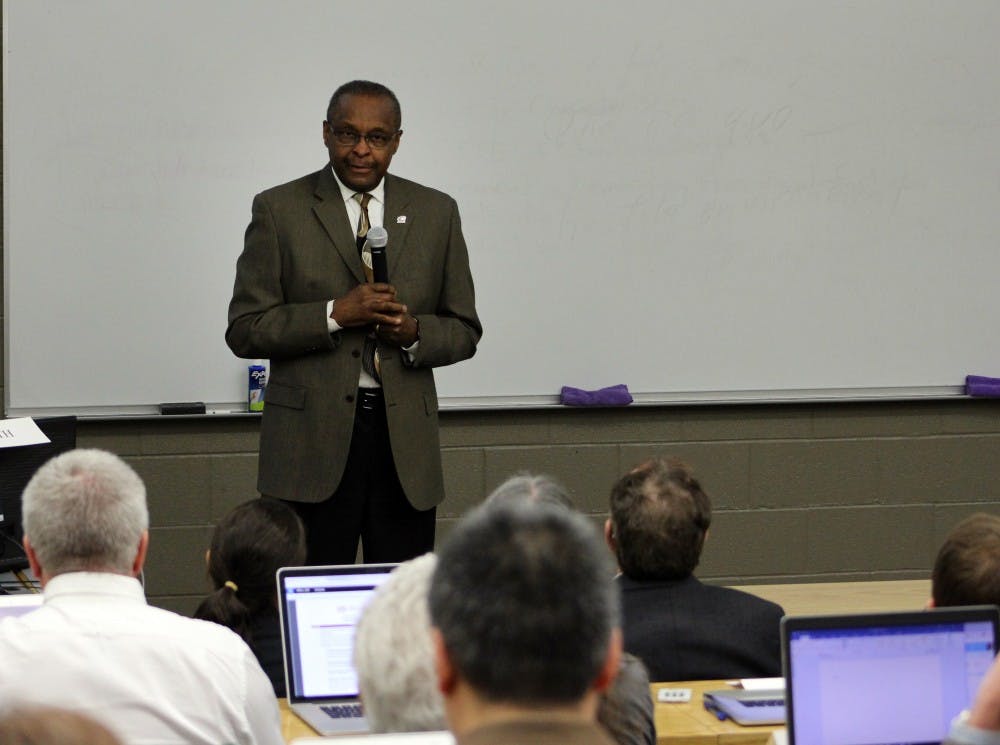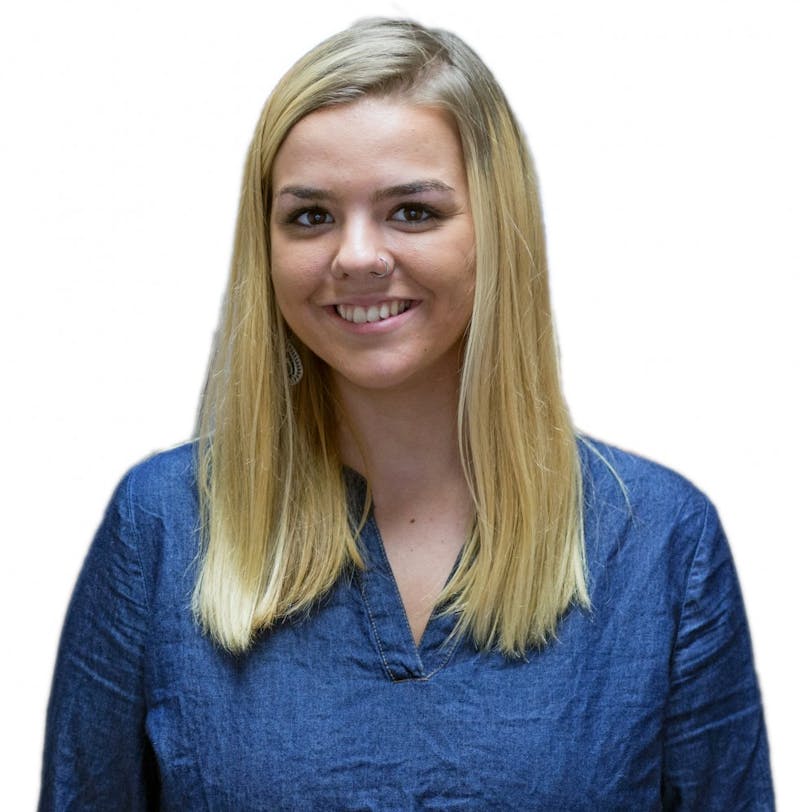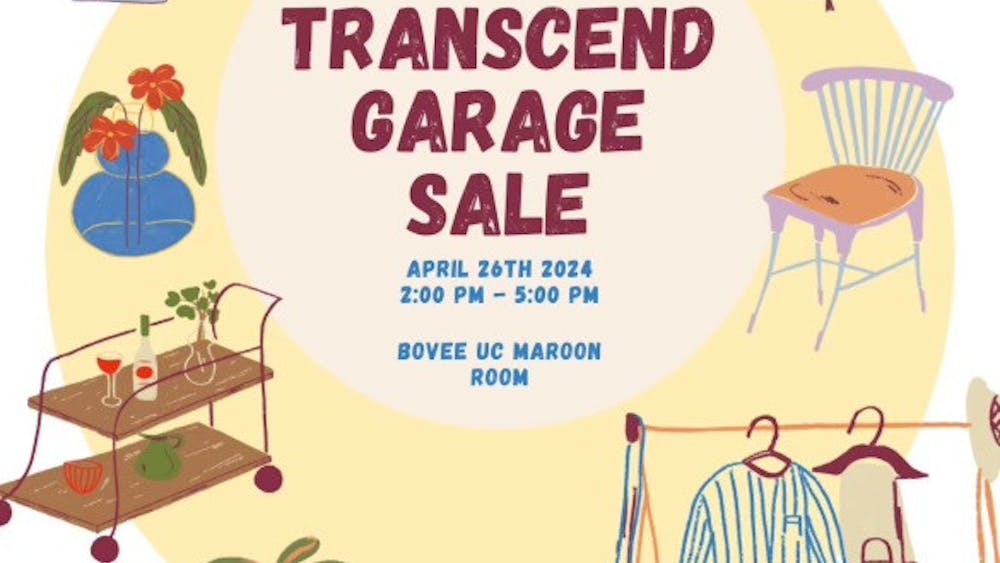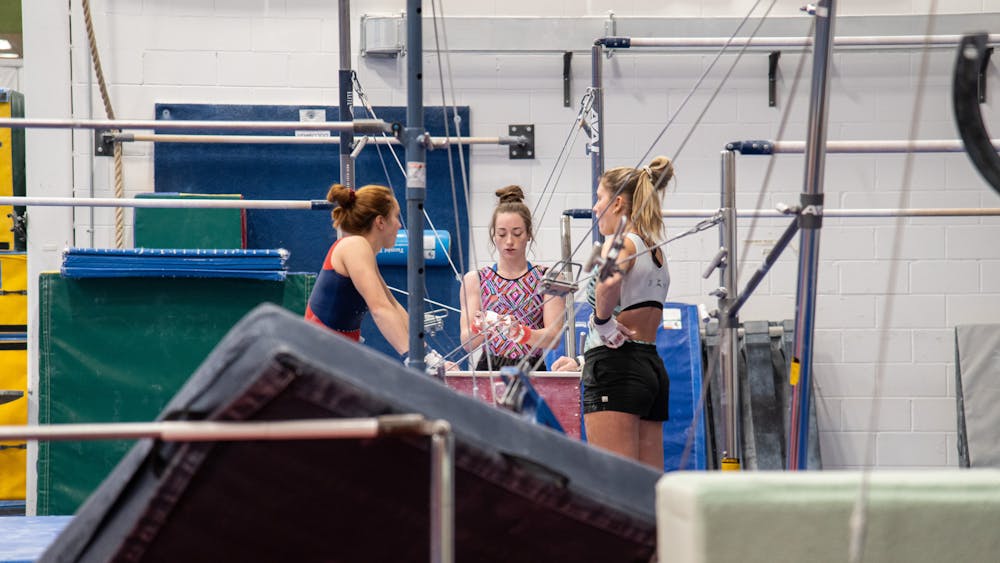Faculty concerned about deficit, debate new proposed UP subgroup

President George E. Ross discusses the university budget at the Academic Senate meeting on March 21 in Pearce Hall.
Central Michigan University has been dealing with financial reductions to different sectors for years, so handling the $20 million deficit is not a new circumstance, said President George Ross during his remarks to the Academic Senate on March 21.
“Any budget reallocation or reduction is going to be hard, and this one is going to be hard,” Ross said. “We have to operate within our means, within our revenues, and that is what this adjustment is about.”
Ross said CMU is a “financially strong institution” and that the budget deficit is being inaccurately described as a “crisis” by the news media. In response, Senators questioned his statement and voiced concerns during the meeting. They then expressed anxieties regarding the confirmed likelihood of faculty layoffs and unequal department cut demands.
Academic Senator Christi Brookes, representing the Foreign Languages, Literatures and Cultures department, said she was worried about how the College of Humanities and Social and Behavioral Science cuts compare to other colleges.
CHSBS has been asked by the university to cut 9.4 percent — about $2.9 million, Brookes said.
“How that plays out in my department means we (will) no longer have graduate assistants,” Brookes said. “I also lose one full-time fixed-term faculty and that means six classes for now that I have to cancel. But I still have to make sure that I have as many seats (as before) in the classroom.”
Brookes said she wants to know how much the other colleges at CMU are being affected and how the chairpersons across campus are adjusting, because the cut requirements drastically vary between colleges.
“It plays out on students, ultimately,” she said.
While the budget continues to be an alarming matter for faculty, A-Senate shifted toward another heated conversation about a UP category. If approved, it could be added to CMU student requirements the graduate.
The change was first introduced in January. It would require students to take a non-race based discrimination course, in the UP subgroup IV-D. This includes courses covering sex, gender identity, age, religion, sexual orientation or disability education.
Jazmin Biernat, president of SGA, said more that 70 percent SGA voted in favor of the proposal.
Some students and faculty were apprehensive of the potential new requirement because it would replace the elective UP requirement. That could complicate a student’s four-year graduation timeline by giving less flexibility in using their elective for major or minor requirements.
Academic Senator Robert Miller of Business Information Systems opposed the proposal and said most students in his classes were against the addition.
“We keep hearing from the senate (that) the Student Government Association supports it, but I just talked to the people who are most directly affected, the people who will pay for this,” Miller said. “We want flexibility. This takes away flexibility.”
Miller’s students think the IV-D requirement is a way for the university to profit more from the student body, he explained.
“That disturbed me tremendously,” Miller continued. “Many of our students argued to me that they like the idea of having the choice to pick something else.”
Academic Senators Mary Senter and Cherie Strachan introduced the IV-D proposal, and emphasized that it would not increase the total hours in university program requirements.
They also described revisions to the proposal, explaining that if students are worried about the category replacement conflicting with their ability to “double count” courses, they will be able to be considered for an exemption.
While some Academic Senators are opposed to the proposal of a IV-D requirement, others supported it. They argued how it will help students succeed in the changing world after college.
Midland junior Cali Winslow, who is a member of Students Advocating Gender Equality registered student organization, stressed the importance of the UP category from her perspective during the meeting.
“I was here at the first discussion they had about this and there was a lot of concern that students didn’t actually want this,” Winslow said. “At the previous meeting, there was a lot of discussion about these types of diversity (programs), (as being topics) that are better left outside of the classroom, which frankly, is not the case.
"The students who say that they don’t want this are the ones who could most benefit from it,” she said. “We owe this to our students and to the world at large to have educated people going into all these different fields.”





